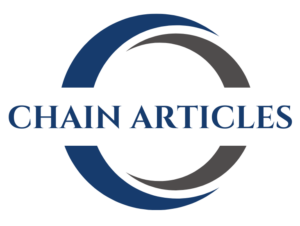Tech executives have long talked about how AI is going to revolutionize the advertising industry. In particularly, Meta CEO Mark Zuckerberg has been quite vocal about how exactly he wants his company to lead the transformation.
Speaking onstage at Stripe’s annual Sessions conference in San Francisco on Tuesday, Zuckerberg laid out his plans to automate the entire ad industry with a black-box, end-to-end AI ad tool.
A key component of such a product would entail putting thousands of AI-generated “test” ads in front of Facebook, Instagram, and Threads users, said Zuckerberg.
“The basic end goal, here, is any business can come to us, say what their objective is — we get new customers to do this thing, or sell these things — tell us how much they’re willing to pay to achieve those results, connect their bank account, and then we just deliver as many results as we can,” he explained. “In a way, it’s kind of like the ultimate business results machine. I think it’d be one of the most important and valuable AI systems that gets built.”
Zuckerberg first described this hypothetical machine on Ben Thompson’s Stratechery podcast last week, and — if built as Zuckerberg envisions it — it would have huge implications for the ad industry. During his Sessions appearance, Zuckerberg posited that while creative ad agencies would continue to exist were Meta to deploy this AI, small businesses might not “have to start off with the creative” and Meta could simply handle all of their advertising operations.
In fact, Zuckerberg asserted during Sessions that Meta’s ad tools, several of which have generative AI capabilities, are sophisticated enough already that the company doesn’t even recommend that customers specify the demographics they’d like to target. Meta’s tools can find interested users better than human marketers can, claimed Zuckerberg. The next logical step, he says, is trying to apply this data-driven optimization to the creative side.
“We’re gonna be able to come up with, like, 4,000 different versions of your creative and just test them and figure out which one works best,” said Zuckerberg.
Techcrunch event
Berkeley, CA
|
June 5
While this sort of solution may appeal to businesses, it’s an open question as to what AI ad testing will do to Meta’s platforms from a user experience point of view, considering they’re already brimming with generative AI slop.
Meta has experimented with AI-generated images and comments in feeds, as well as AI chatbots users can interact with. The company more recently launched a social portal and dedicated app that spotlights generative AI content. Now, it appears yet another category of generative AI — ads — is poised to gunk up Meta’s social media ecosystem.
If it wasn’t clear before that users are the product on Meta’s platforms and advertisers the customers, it’s about to become crystal. While testing AI-generated ads may deliver value for companies, it means users will have to suffer through yet more slop.
The ad industry isn’t likely to take kindly to Zuckerberg’s vision, either.
There’s been significant backlash over the ethics of using generative AI in creative fields. In October 2024, more than 11,000 creators signed an open letter condemning the use of human-generated art to train AI systems. Creators have also filed lawsuits against companies developing AI art tools, such as Midjourney and Stability AI.
To be fair, there are just as many creators and advertising executives who believe AI tools won’t threaten their livelihoods anytime soon. Johnny Hornby, founder of the ad agency The&Partnership, on Tuesday published an op-ed arguing that creating successful branding campaigns is still a uniquely human task.
In any event, it seems that Zuckerberg has a pretty clear idea of how he wants to automate the ad industry and fill Meta’s feed with AI — whether ad agencies or users like it or not.


